- Home
- Dot Hutchison
The Roses of May (The Collector Trilogy Book 2) Page 6
The Roses of May (The Collector Trilogy Book 2) Read online
Page 6
Ten o’clock came and went, and Chavi didn’t.
She didn’t answer texts or calls, and that just wasn’t Chavi.
Mum called the others in the study group, but they all said the same thing: she left the coffee shop around eight, biking the same direction as always. One of the boys offered her a ride, but she said no. Chavi always said no when he offered her something, because he had a crush on her and she didn’t feel the same way. Dad laughed at Mum and me for worrying. Chavi was just being a teenager, he said, and when she got home, she’d be grounded and she wouldn’t ever do it again. That wasn’t Chavi, though.
The disc menu pops up on the television, tinkling music on a twenty-second loop. Rather than get up to change the disc, I hit “play all” again. I take a moment to shake out my hand, rubbing out the cramps starting to form.
Chavi going missing is easy to talk about. What followed is less so.
But Inara’s nightmares are out there for the world to see; until the next girl dies, mine are on the page only for her. I can do this.
Mum called the police. The dispatcher listened and agreed it was out-of-character behavior, and started asking questions. Where was she last seen? What was she wearing? What color was her bike? Could we email a recent photo? We lived outside of Boston back then. Chavi was off to college in the fall, but she was still seventeen, so she was still a child. The dispatcher said one officer would come to the house, in case Chavi came back, but others would be out looking.
By then, Dad was pissed. At Chavi, for making people worry. At Mum, for causing such a fuss. At me, even, for insisting on going out with Mum to search. I missed most of their argument, because Mum sent me upstairs to dress in something warmer, but when I came down, the newly arrived officer was standing in the doorway looking profoundly uncomfortable while Mum told Dad to stay and wait if he couldn’t be bothered to break a sweat for his missing child.
You don’t fuck with Mum.
It was late enough that none of the patrol cars had their sirens on. Their lights flashed, though, and it brought neighbors out of their houses and more people joined the search. It’s something to see, really, everyone throwing coats over nightclothes and pairing off with flashlights and whistles.
Josephine—Chavi’s best friend and girlfriend, though most only knew the first bit—went toward the school to look. Her mother had to hold the flashlight because Josephine was shaking too much. She knew the same thing Mum and I did: Chavi would never just go off or stay out.
Mum and I went to the church. It hadn’t actually been a church since just after we moved there, but everyone still called it that. A few members of the former congregation even donated a salary for Frank, the Desert Storm vet who lived in a studio at the back of the lot and kept everything up. One of the side doors was always unlocked in case of bad weather or a need for shelter. Maybe Chavi had fallen from her bike and couldn’t get all the way home. Maybe her hypothetical fall had broken her phone, so she couldn’t call for help.
We looked through the park first, but when she turned toward the trees at the back of the property, Mum told me to wait by the church. Whenever the weather got warm, transients started camping there overnight, so she didn’t want me back there even with her. She told me again to wait, promised she’d wake up Frank so she wasn’t alone.
I didn’t follow her, but I also didn’t wait. Couldn’t wait, not if there was a chance my sister was inside that building. It didn’t occur to me for a second that it could be dangerous. The church was safe, not because of any religious sensibility but because it was always safe. Chavi and I were always safe there.
We could spend hours at a time there on sunny days. She’d sit on the floor, sketch pad on one knee, puddles of colored light on the grey stone around her. We were so in love with the stained-glass windows. She kept saying she couldn’t get the drawings right, and she’d try again and again and again, and I’d stand off to one side with my camera to capture the dust that danced in the sunbeams, the color on the stone, the way the light and motes made Chavi glitter.
On the good days, that’s the Chavi I see when I close my eyes: light and color and glitter.
I push “play” again on the disc menu and press my hand flat against the blanket, willing it to stop shaking.
I can do this.
I don’t even have to send it, if it’s too overwhelming. But I can finish this. How many times has Inara had to tell her story to strangers?
She was out in the open in the T of space between the altar and the discolored portions of floor where the pews used to be. She was stark naked, but my mind latched less on to the fact that she was nude—she was my sister, I’d seen her naked before—than on the fact that her clothes were neatly folded and stacked on top of her backpack a few feet away. Chavi might as well have been allergic to folding her clothes for as often as she did it. But seeing how utterly clean her favorite shirt was made me realize how much blood was on the floor around her, and I dropped to my knees beside her, pushing at her to wake up, please, wake up. I was still screaming.
I’d never seen so much blood before.
I didn’t hear Frank come in but suddenly he was there, half-dressed and carrying a paint gun. He took one look at Chavi, turned grey, and whirled around in a wild circle. Looking for whoever did it, I realized much later. Then his arm came around me and he tried to tug me away.
I think I remember him speaking? I’ve never been sure.
But I wasn’t going to leave. I fought his grip, and truthfully he was too shocked to put much strength behind it. I was still screaming at Chavi, poking at the ticklish spot on her ribs because she could never sleep through that, and she still didn’t move.
There was a sound at the door, followed by Mum’s yell, my name sharp and shrill and scared, and Frank ran to her. He kept her from coming in, physically barring the way, and he begged her, weeping, to call me to her. Just call me away from Chavi.
I’ll never forget the flowers around Chavi, and in her hair: yellow chrysanthemums like suns.
You know how big news tragedies or events have that one pivotal, iconic photograph? So that years or even decades later, people can instantly recognize the picture?
When a reporter broke the story, they didn’t have a picture of Chavi’s body, just a yearbook shot and whatever they could find on Facebook. So they used a photo of me.
Twelve years old and covered in blood, still screaming and sobbing, and reaching for the church—for my sister—as a grim-faced paramedic carried me away. For months, that picture was everywhere. I couldn’t escape it, and it crops up again every spring when another girl dies with the flowers and a slit throat and someone calls the FBI with the theory that it’s the same guy.
I wasn’t there when they told Dad. It must have been the officer waiting at the house. Dad came to the hospital, where a doctor gave me a mild sedative against the shock, and he moved so slowly, like his whole body ached. Like he’d aged centuries. He’d laughed at our worries.
I don’t think I ever heard him laugh again.
Chavi died, declared the official report, between nine and ten Monday night.
The rest of our family died around midnight, only it took a while to know for sure. Mum and I were phoenixes, rising in our own way. Dad just burned and burned until he didn’t.
The public steals tragedies from victims. It sounds strange, I know, but I think you may be one of the few people who’ll understand what I mean by that. These things happened to us, to our loved ones, but it hits the news and suddenly everyone with a TV or computer feels like they’re entitled to our reactions and recoveries.
They’re not. It takes a while to really believe it, but you owe them nothing.
Our agents are good at adopting strays, but we don’t actually have to let them. They make the overtures, sure, but we’re the ones who allow it to become a real thing. There’s comfort in that, in knowing we can at any moment choose to walk away and they will absolutely let us.
Th
ere’s more comfort in realizing we want to stay, that this is a good thing we’re allowed to have.
That we’re allowed to be happy.
I’m still working on that, but in the meantime? We’re allowed to be broken. We don’t have to feel ashamed of that.
Write back, if you’d like. I don’t know that I have any wisdom to impart, but your letters are welcome.
She’s only a year and a half older than me.
I guess it isn’t the years that matter.
Hours later, when Mum leaves for work, I retreat back to my room and wrap myself in my comforter like a burrito. I don’t sleep exactly, just sort of drift until my bladder is bursting and shrieking at me to get out of bed, and it’s probably for the best if I don’t crawl back under the covers. Hunger curls and crawls low in my belly. The thought of eating is . . . worrisome.
I know this mood. If I start eating, I won’t stop. Not even when I’m full and stretching and pained, because that kind of pain makes more sense than this grief and rage that bleed under my skin.
I shower and dry my hair, make a note to ask Mum to refresh the streaks because there’s almost half an inch of root growth, and draw on eyeliner and lipstick with a heavy hand. Chavi taught me all the small tricks that make the difference between a challenge and a tease and a snarl. She always fell somewhere between challenge and tease, softened with shimmering white and gold powders. I usually brush on silver and white, but not today. Today is black and red and about as pissed off as you’d expect from that.
Once I’m dressed and I’m sure I’ve got the pepper spray easily accessible in my outer coat pocket, I leave the house for the chess island. The air’s so dry it hurts, and I have the feeling I’ll be using the tissues in the other pocket for a nosebleed sometime in the next couple of hours.
When I walk up onto the dead grass, Corgi looks up and whistles, soft and impressed. “You really do belong with us, don’t you, Blue Girl?” At my smile, sharp and brittle, he nods. “Come on, then. Happy hasn’t had a victory in weeks. Let him live up to his name.”
So I sit down opposite Happy, who looks sober and haunted, and play until he claims he’s pulled so far ahead of Corgi in their never-ending tally of victories that his friend will never catch up.
Corgi’s a good player, even against people who know what the shit they’re doing. If the tally is anything honest, Happy hasn’t got a chance.
But Corgi smiles, scratches the side of his nose, and says Happy shouldn’t sit too easy.
Landon starts with Yelp, down on the far end of the tables from me. When he shuffles down to take Steven’s challenge, it puts him next to me. I’d more or less decided to give him the benefit of the doubt going forward, and assume that he doesn’t mean to be creepy. Maybe he doesn’t even realize he’s doing it. I’m just not going to engage.
Today, though, I’d really like to pepper spray him on principle, so I should probably go back to the instinctive plan of avoid, avoid, avoid.
Bracing my hand on Corgi’s shoulder, I clamber over the bench and stretch out the kinks and aches of sitting in the cold. “Come on, Corgi, show me how it’s done.”
He and Happy give me nearly identical grins, and he scoots over to take my empty seat. I hover over his shoulder for a while, watching the beginning of the game—I can tell by the fifth move that Happy is going to lose—until the men at the other end shuffle around. It’s easy to casually plop down across from Pierce, who tends to stay close enough to Gunny to keep an eye on the old man.
I play Pierce for a couple of games, then Yelp for one while Gunny naps into his hands in the corner. The girl in the car—Hannah, I learned my second day, Gunny’s youngest granddaughter—comes up once to check on him. She has a blood sugar strip in her fingers, and she slides her hand up under his sleeves to get the stick from his forearm. The device in her other hand is barely the size of an egg, but it reads the bloodied strip and gives her a number, which she notes into her phone.
I like Hannah, I think. Not that I’ve gotten to know her—she tends to stay in the car except when it’s time to test Gunny’s blood sugar—but because she never acts like this is a chore or an imposition. She bundles up and waits with her knitting or a book, occasionally looking up toward the pavilion to check on Gunny, and she seems to enjoy the other vets. They call her Miss Gunny, and she just rolls her eyes and tells me sensible people call her Hannah.
When Gunny wakes up with a start, he looks at me, his face still soft with sleep. “In the trenches today, Miss Priya?”
“Yes, sir. It happens sometimes.”
“It does.” He turns the board sideways so he can reach between the ranks of pieces. My heavy gloves are in my pocket, but it’s still cold enough that I’ve got a pair of knit arm warmers over most of my hand. I give it to him anyway, his skin coarse and paper-fine as his fingers close around mine. “You’re too young to stay there, though.”
He’s not asking. If I don’t want to tell him, I absolutely don’t have to, and he will not hold it against me in the slightest.
But Frank’s on my mind, Frank who had a hard time coming home after his war but was always unfailingly generous and wanted to help. Some days he couldn’t really deal with people, and that was fine, we let him be those days. He had a lot of those days after that night in the church.
“My sister was murdered a while back,” I whisper, hoping his ears are still sharp enough that I won’t have to repeat myself. Yelp and Jorge are focused on their game next to us. “I found her. Last night was a bit more . . . more present than past.”
He nods and gives my hand a gentle squeeze. “And now that you’re awake?”
“It’s still a bad day.”
“But you came out.”
“All of you know that kind of bad day, or you wouldn’t be here, either.”
He smiles, his entire face disappearing in crinkles and wrinkles and folds. “Thank you for coming on a bad day.”
I stay long enough to have a complete game with Gunny, then head into the store to get a drink for the way home. Landon follows me in.
Yay.
He stands behind me in line, and my discomfort ratchets up to anger when I realize I’ve got my thumb on the trigger for the pepper spray, my fingers wrapped around the leather case. I don’t like feeling vaguely endangered. I want a specific threat, something I can point to and say this and everyone understands, not a number of impressions that make women nod and men shake their heads.
“You look sad today,” he says eventually.
“I’m not.”
Sadness and grief aren’t the same thing. It’s why they have different words. Maybe it’s a subtle distinction, but we don’t keep a word in a language if it doesn’t still have a purpose of its own. Synonyms are never exact things.
“Are you sure?” he asks, stepping almost beside me.
“Yes.”
“It’s getting dark outside.”
“Yes.” And it is this time, the sky streaking indigo and the temperature dropping. I stayed later than I meant to, but it helped. The vets all helped, but I think I needed Gunny to reassure me that I wasn’t bringing them a burden.
“You shouldn’t be walking home all alone in the dark.”
I turn toward him a little and smile, too many teeth and not enough sweetness. “I’m fine.”
“There are bad people in the world.”
“I’m aware.”
I was only sort of aware of that before I was twelve. I don’t think I’ll ever be able to forget it.
The sparrow woman behind the counter doesn’t ask for my name this time. She just takes my payment and starts making the hot chocolate, adding more syrup than she’s probably supposed to.
“What if someone hurts you?” Landon presses, following me to the other end of the counter without ordering a drink.
Eddison sometimes jokes about getting me a Taser for my birthday. I’m starting to think I should take him up on it.
I ignore Landon and accept my drink f
rom the barista, whose name tag is always hidden under her apron. I don’t bother to add vanilla or sugar this time, preferring the bitterness to continued interaction. But he still follows me between the tables, and my keys—and my pepper spray—are now outside my pocket.
Then I hear him yelp, and turn around to see him dripping with what used to be a large, very hot coffee, most of it up near his face and the open neck of his heavy shirt. Another man, taller and in a cable-knit sweater, apologizes profusely but in a way that sounds just a little insincere. He brushes at Landon’s shirt with a tiny napkin that soaks up nothing.
“I’ve got it!” snarls Landon, and stalks away still dripping.
The other man turns to me and smiles, and I can place him now, a handsome guy who sits in the corner with a book and sometimes a stack of paperwork. He’s probably in his upper thirties, well put together without seeming vain about it, and he’s not trying to hide the way his dark auburn hair is silvering at the temples. “I’m sorry, but he seemed to be bothering you.”
I let my hand slide back into my pocket, hiding the pepper spray from sight, but don’t let go of it quite yet. “He was.”
He pulls a handful of actual napkins from his pocket and kneels down to sop up what coffee didn’t cling to Landon. Rubbing another napkin over his hands to dry them, he pulls out his wallet and holds a card. “I recently designed the website for a shuttle service here in town. It’s mostly to help homebound folks to the store or doctors or other errands. If you ever feel uncomfortable, think about giving them a call.”
It’s a straightforward card, a simple logo centered along the top with the information printed neatly below. It includes a phone number and website, something I can at least research.
“Tell them Joshua sent you,” he adds.
“Thank you. I’ll keep it in mind.” I let go of my keys to take the card, tucking it into my opposite pocket with the tissues. I glance around for Landon, but he must still be in the bathroom or wherever he stalked off to, so I nod in place of goodbye and walk off.

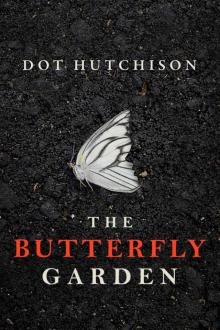 The Butterfly Garden
The Butterfly Garden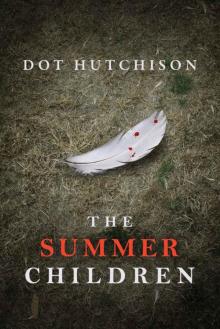 The Summer Children (The Collector Series Book 3)
The Summer Children (The Collector Series Book 3) A Wounded Name (Fiction - Young Adult)
A Wounded Name (Fiction - Young Adult)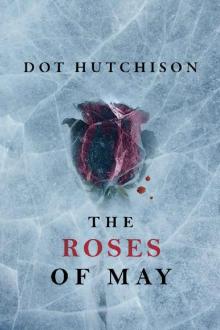 The Roses of May
The Roses of May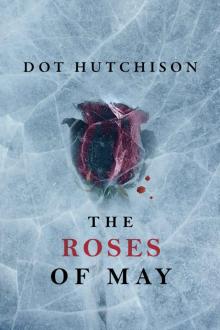 The Roses of May (The Collector Trilogy Book 2)
The Roses of May (The Collector Trilogy Book 2)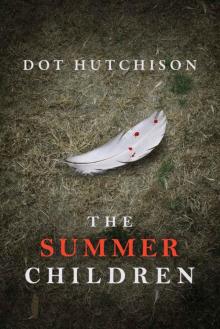 The Summer Children
The Summer Children